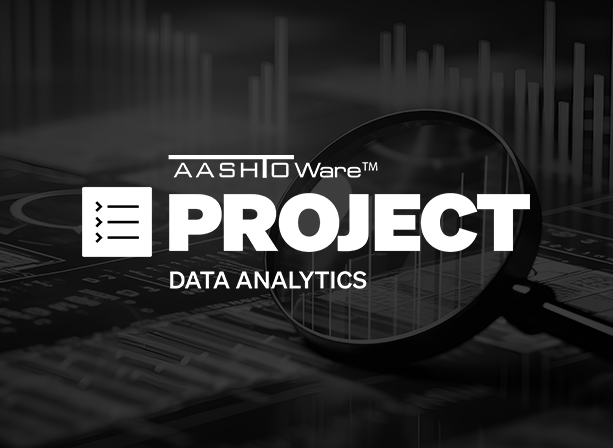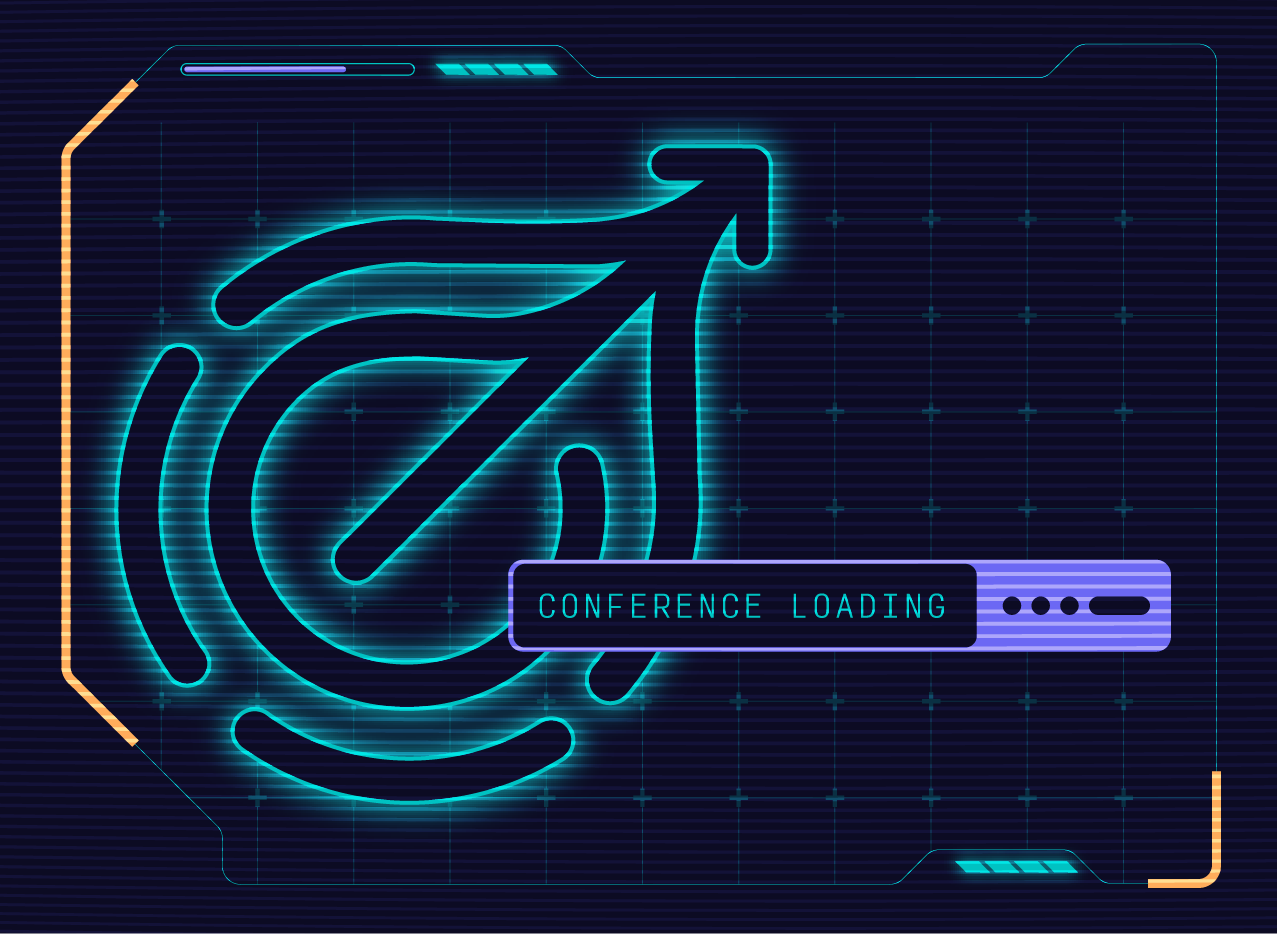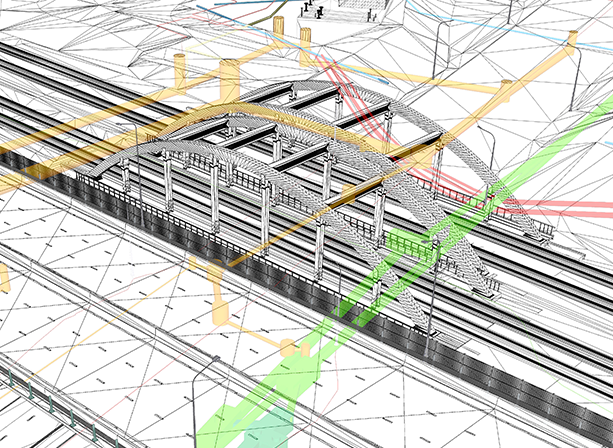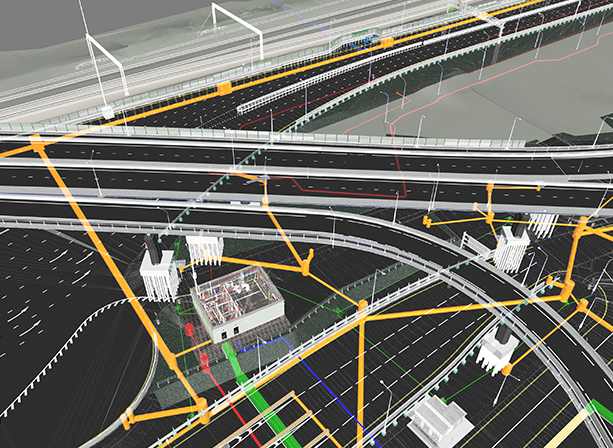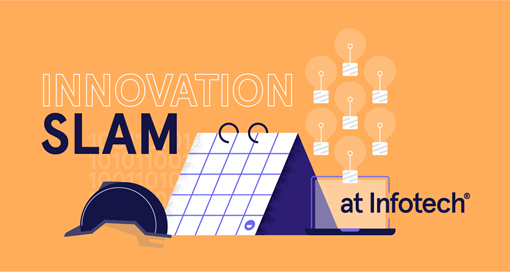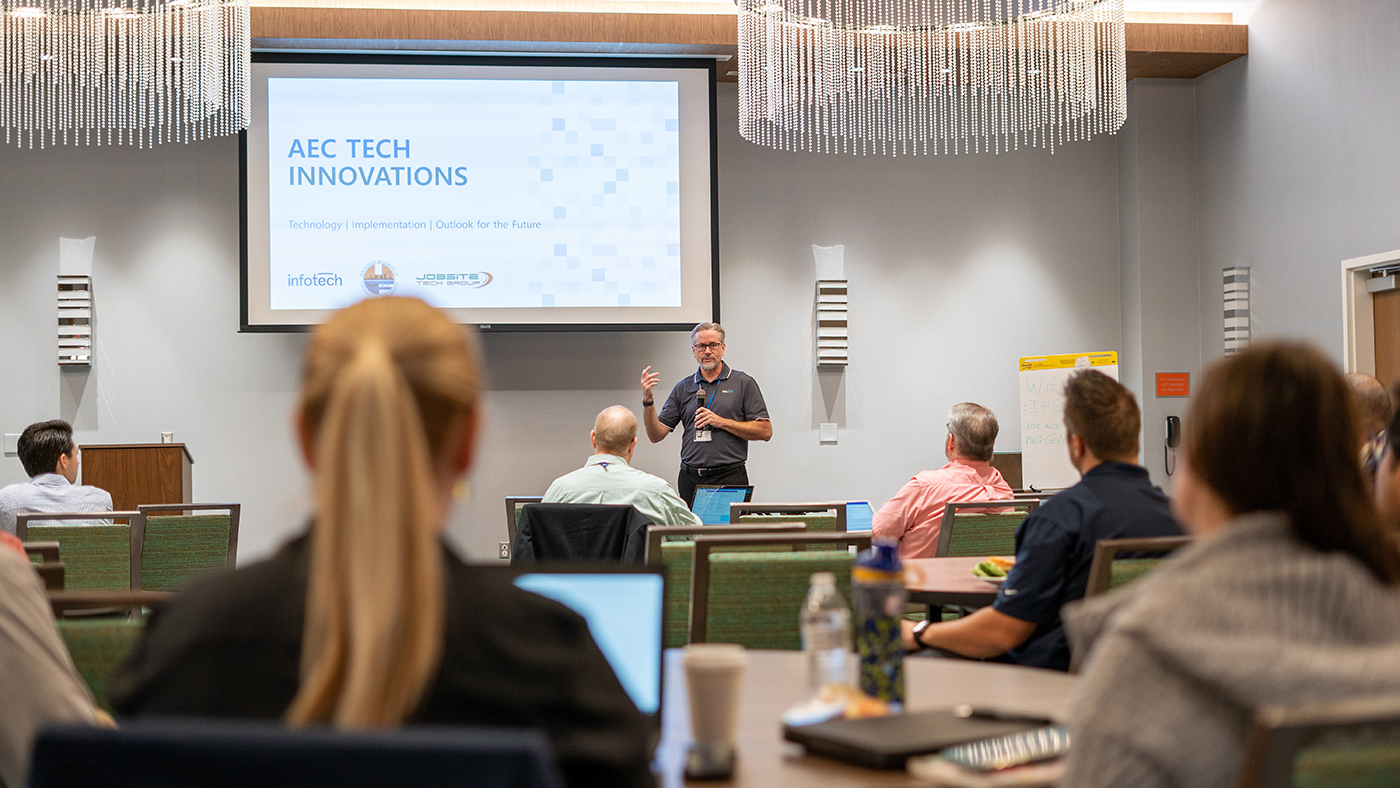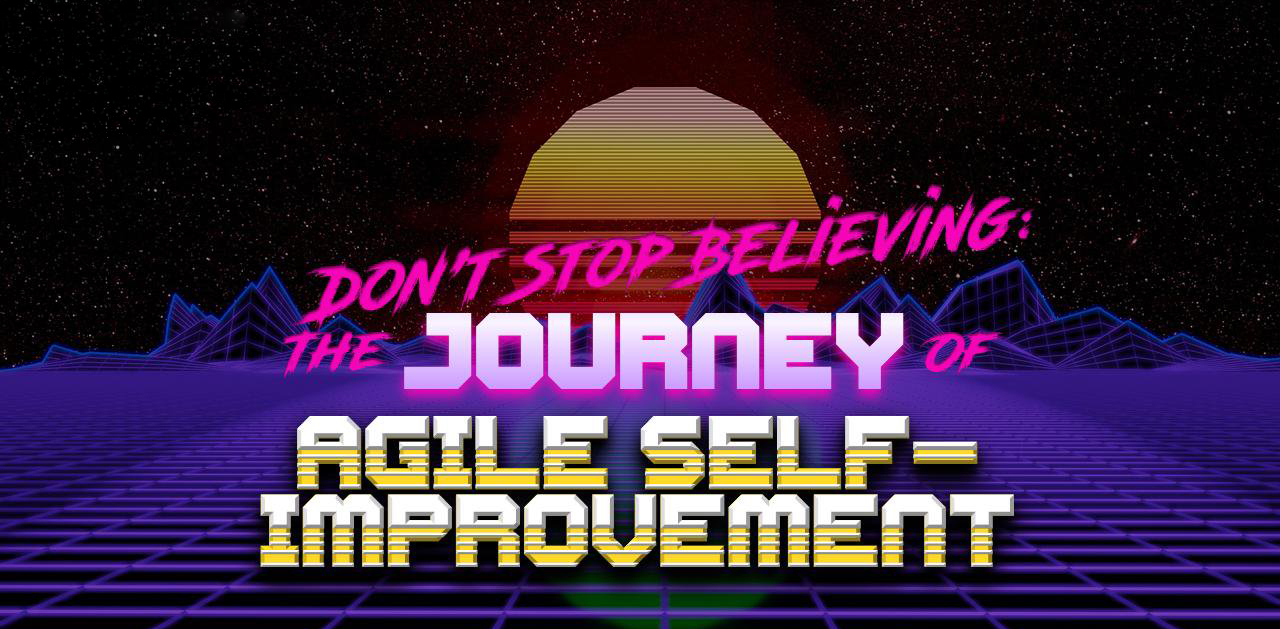Featured Blog

Cherokee Nation DOT Goes Digital to Streamline Bidding, Project Management, and Inspection
To ensure everyone was on the same page during construction project management, the team at the Cherokee Nation Department of Transportation started looking for a better way to track construction progress.
All
BIM Design
Construction Administration
Construction Data
Construction Inspection
Culture
Cybersecurity
Deconstructor
Digital Project Delivery
e-Bidding
GIS Asset Management
Infrastructure
Tech Trends

Infotech Brand Refresh: Driving Towards a More Connected Future
We knew we needed to make a new splash in the world of infrastructure with a fresh campaign, to not only reinforce the company’s standing in the industry to our partners and community, but also to make a single question clear: who is Infotech?

Matching the Tool to the Task: Key Decision Factors in Survey Technology Deployment
Selecting the right technology for the job is more critical than ever, whether you're capturing stockpile measurements with a smartphone app or sealing legal deliverables with survey-grade software. Explore the necessary considerations and questions to ask to find the right tool for your fieldwork needs.

Mitigating Change Orders with ADCMS Technology: Five Key Areas
An Advanced Digital Construction Management System (ADCMS) can help mitigate change orders by improving cost estimation, real-time project tracking, communication, and process standardization. We break down five key areas where an ADCMS can make a major impact, with real-world examples.

[Case Study] C&S Companies Leverages GIS for Accurate Airfield Inspections and Future-Ready Asset Management Data
When it comes to airfield inspections, the team at C&S Companies recognizes the value of accurate and precise digital as-built data. With the goals of accuracy, collaboration, and future-ready data in mind, C&S Companies started testing a GIS-powered inspection solution.

The Impacts of the Trump Administration on Infrastructure: Federal Funding, Tariffs, and More
In a country where political divisiveness seems to increase by the hour, infrastructure is one of the few issues to receive ongoing bipartisan support. During the Biden administration, the Bipartisan Infrastructure Law (BIL) (also referred to as the Infrastructure Investment and Jobs Act) marked a historic, $1.2 trillion investment in our nation's infrastructure. Its passage was celebrated across the political spectrum, with President Biden declaring it "the enemy of potholes everywhere."

The Close Out: Finding Efficiency with Construction Management Software
There are many phases to construction projects, but the least discussed always seems to be the close out. Yet, this phase can often be one of the most labor-intensive and costly for a public project when it comes to inspection and recordkeeping.

7 Critical & Emerging Technologies Relevant to Construction & Infrastructure
In February 2024, the White House updated its list of Critical and Emerging Technologies, a regular report that comes via the National Science and Technology Council. While the list is often focused on increasing national security, the committee also prioritizes technology that expands economic prosperity and defends the American way of life.

Infrastructure Inflation Impacts and How Cost Planning Can Help
Did you know we've been through 11 straight quarters of highway construction cost increases? With inflation on the rise, all the additional buying power granted by IIJA is taking a hit. Data management, analysis, and process standardization may be the solution.

Artificial Intelligence Impacts and the Importance of Advanced Digital Construction Management Systems
Many organizations continue to work toward data driven decision-making and leveraging artificial intelligence (AI) - but the first step is data governance and quality control via digital construction management systems.
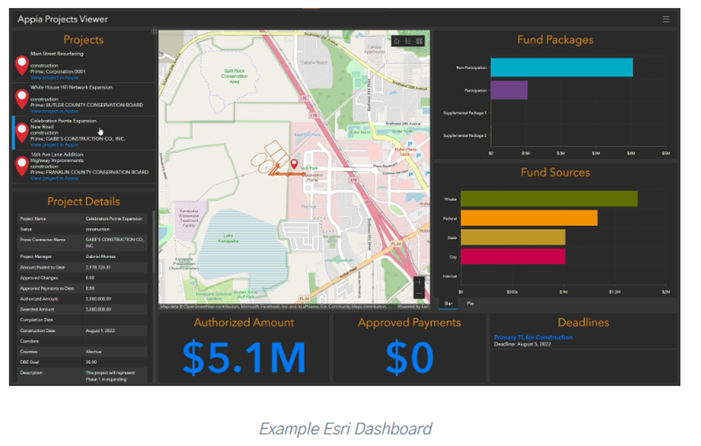
The Top Four Benefits of Visualizing Construction Data
If your project manager only needs to see data on map once, the impact of efficiency is straightforward. But there are many other benefits to visualizing construction data, including collaboration, transparency, responsiveness, and a deeper level of insight.

The Time-Saving, Stress-Defeating Benefits of Digital Inspection Workflows
Early in the 15th century, a man named Johannes Gutenberg invented the printing press and revolutionized the way information was spread. But 600 years later, we're still dealing with the same challenges regarding how information flows from point A to point B.

Three Areas to Consider When Evaluating an Advanced Digital Construction Management System
Today's construction industry is in an interesting time with a landscape that seems hardly untouched by tech in any area, unlike never before. So, with so much technology out there, how do you know what to choose?

How Construction Inspection & Bidding Software Enhance Safety & Compliance
If you've ever seen one of those movie-sized OSHA posters, you know the dizzying amount of rules and regulations that construction sites must adhere to in order to be safe. It makes sense, as construction sites continue to rank among the most hazardous working environments.

Post-2020 Tech Trends: Is the Construction Industry Prepared for Another Pandemic?
"Oh God, I don't even want to think about that," said Kristina Rhine, Director of Purchasing at Bowling Green State University, when I asked her the question in this article's title. I explain that this is more about reflection than prediction, a way to look back at all the technology adoption trends driven in part due to the pandemic. After a second to think, she responds in the affirmative.

The Top Four Benefits of Construction Inspection Software
Construction inspection software offers teams a digital solution for capturing information that was traditionally recorded in fieldbooks or spreadsheets. By replacing these outdated methods, construction inspection software reduces the potential for human error, rework, and inefficiency.

Minnesota DOT Leverages Integrated Field Tools for Seamless Digital Inspection
Construction projects are like clocks. Complex, interconnected, with each component interacting seamlessly to keep things moving forward. So, what happens when a component breaks? And how can digital tools prevent that from occurring?

5 Key Insights from Let's Be Civil, Episode 6: IFC & e-Bidding
In the latest episode of Let's Be Civil, "Bringing Open Data Standards & IFC into the World of e-Bidding," we were joined by BIM expert Ron Gant and technology leader Andy Martin to explore the overall goals of Industry Foundation Classes (IFC) and how implementing these standards in a bidding platform is the best way to connect the owner and contractors.

Best Practices: Streamlining Compliance with Technology
There is a growing need for data to become more connected to enable collaboration across planning, design, construction and asset management. Everyone needs to be working with the same set of data to complete projects successfully and with full accountability.

[Case Study] Jackson County Maximizes Reach and Efficiency with Bid Express®
Rural Ohio counties often have their advertising exposure limited to vendors in their geographic area. Jackson County sought to reach more bidders throughout Ohio, while also introducing new efficiencies to the bidding process.

How to Leverage AASHTOWare Project™ Data to Create Digital As-Builts
A few essential elements are needed to create a digital as-built: data must be searchable, spatial, and extractable and accessible by other systems to support post-construction activities. AASHTOWare Project<sup>™</sup> offers all of this.

Construction Profits Face Uneven Road as Pandemic Recovery Continues
The last few years have been a challenging and confusing time for everyone in the construction industry. Surveys have shown ongoing concerns about costs and profitability. With Q1 behind us, there are still persistent cost pressures and operational challenges that threaten to delay projects and erode profits. Here are a few of the most important trends we're watching as the industry puts 2023 budgets and plans into action.

You're Meant To Be in This Room: Reflections From Infotech's Women in Construction
Women in Construction Week (WIC Week) helps change the narrative by addressing that gap in perception and encouraging women to learn about the tremendous opportunities in the construction industry. We sat down with Infotech leaders to discuss the roles of women in construction and the many paths they take to get there.

IFC, Open Data, and buildingSMART: What's the Big Deal?
IFC, short for the industry foundation classes, have been a recent buzz word thrown around with building information modeling (BIM). Before we can understand the hype about IFC and why it's important, we must first understand the context of digital information exchange within the built environment.

[Case Study] Wolverine Engineers & Surveyors, Inc. Brings e-Construction Innovation to Michigan Municipalities
Fueled by a desire to embrace the future of digital project delivery, Wolverine sought out cloud-based solutions that would allow for visual daily reports, remote online bidding, and paperless change order management.

5 Key Insights from Let's Be Civil, Episode I: Infrastructure Bill Impacts
What will $550 billion in federal funding mean for the heavy civil construction industry? New reporting requirements, staffing needs, and technology expectations could mark a tectonic shift for the heavy civil infrastructure industry when the Infrastructure Investment and Jobs Act passes.
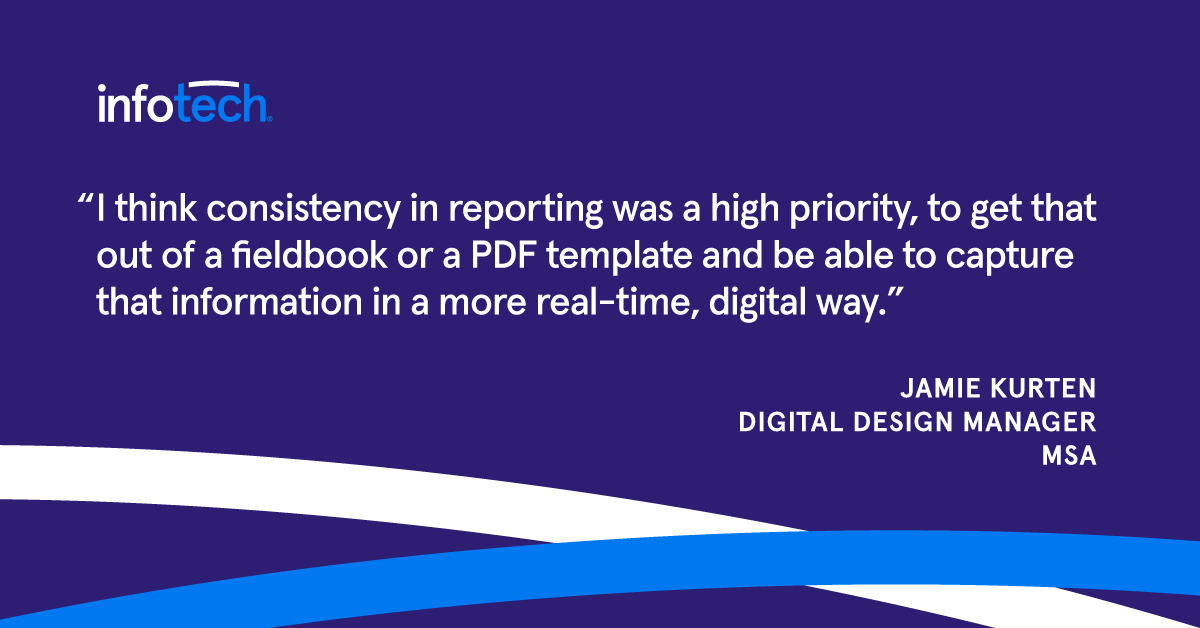
[Case Study] MSA Sets the Stage for Digital Growth with Appia®
With more clients seeking sophisticated digital deliverables, MSA made finding a way to capture data digitally a top priority. A need for more consistent reporting and to eliminate redundant tasks also factored into the search for a solution.

Employee Spotlight: Dr. Tom Rothrock – Celebrating 40 Years with Infotech
It was a humid, rainy night when Dr. Tom Rothrock, a young professor from Wisconsin, stepped out of a plane onto the tarmac at the Gainesville airport. The year is 1978, and he's about to meet someone who will change the course of his life.

[Case Study] The City of Milwaukee Embraces e-Bidding for Better Quality Bids
With the vast majority of Milwaukee's Public Works bidding community using Bid Express, issues with non-compliant and non-responsive bids have been eliminated, while the city also gets a clearer picture of their bidding community.

An Evolving Playbook: The Xs and Os of Returning to an Office Environment
Month seven of full-time remote work does not look or feel like month two. Our Game Plan is a firm promise that this time has an end date and that Infotech has no intention of transitioning to a permanent fully-remote workforce.
<
1
2
3
4
5
6
7
8
9
10
11
>

7 Critical & Emerging Technologies Relevant to Construction & Infrastructure
In February 2024, the White House updated its list of Critical and Emerging Technologies, a regular report that comes via the National Science and Technology Council. While the list is often focused on increasing national security, the committee also prioritizes technology that expands economic prosperity and defends the American way of life.

How to Leverage AASHTOWare Project™ Data to Create Digital As-Builts
A few essential elements are needed to create a digital as-built: data must be searchable, spatial, and extractable and accessible by other systems to support post-construction activities. AASHTOWare Project<sup>™</sup> offers all of this.

IFC, Open Data, and buildingSMART: What's the Big Deal?
IFC, short for the industry foundation classes, have been a recent buzz word thrown around with building information modeling (BIM). Before we can understand the hype about IFC and why it's important, we must first understand the context of digital information exchange within the built environment.

Matching the Tool to the Task: Key Decision Factors in Survey Technology Deployment
Selecting the right technology for the job is more critical than ever, whether you're capturing stockpile measurements with a smartphone app or sealing legal deliverables with survey-grade software. Explore the necessary considerations and questions to ask to find the right tool for your fieldwork needs.

Mitigating Change Orders with ADCMS Technology: Five Key Areas
An Advanced Digital Construction Management System (ADCMS) can help mitigate change orders by improving cost estimation, real-time project tracking, communication, and process standardization. We break down five key areas where an ADCMS can make a major impact, with real-world examples.

The Close Out: Finding Efficiency with Construction Management Software
There are many phases to construction projects, but the least discussed always seems to be the close out. Yet, this phase can often be one of the most labor-intensive and costly for a public project when it comes to inspection and recordkeeping.

Three Areas to Consider When Evaluating an Advanced Digital Construction Management System
Today's construction industry is in an interesting time with a landscape that seems hardly untouched by tech in any area, unlike never before. So, with so much technology out there, how do you know what to choose?

Post-2020 Tech Trends: Is the Construction Industry Prepared for Another Pandemic?
"Oh God, I don't even want to think about that," said Kristina Rhine, Director of Purchasing at Bowling Green State University, when I asked her the question in this article's title. I explain that this is more about reflection than prediction, a way to look back at all the technology adoption trends driven in part due to the pandemic. After a second to think, she responds in the affirmative.

Best Practices: Streamlining Compliance with Technology
There is a growing need for data to become more connected to enable collaboration across planning, design, construction and asset management. Everyone needs to be working with the same set of data to complete projects successfully and with full accountability.

How to Leverage AASHTOWare Project™ Data to Create Digital As-Builts
A few essential elements are needed to create a digital as-built: data must be searchable, spatial, and extractable and accessible by other systems to support post-construction activities. AASHTOWare Project<sup>™</sup> offers all of this.

[Case Study] Wolverine Engineers & Surveyors, Inc. Brings e-Construction Innovation to Michigan Municipalities
Fueled by a desire to embrace the future of digital project delivery, Wolverine sought out cloud-based solutions that would allow for visual daily reports, remote online bidding, and paperless change order management.

[Case Study] MSA Sets the Stage for Digital Growth with Appia®
With more clients seeking sophisticated digital deliverables, MSA made finding a way to capture data digitally a top priority. A need for more consistent reporting and to eliminate redundant tasks also factored into the search for a solution.
<
1
2
3
>

Matching the Tool to the Task: Key Decision Factors in Survey Technology Deployment
Selecting the right technology for the job is more critical than ever, whether you're capturing stockpile measurements with a smartphone app or sealing legal deliverables with survey-grade software. Explore the necessary considerations and questions to ask to find the right tool for your fieldwork needs.

Mitigating Change Orders with ADCMS Technology: Five Key Areas
An Advanced Digital Construction Management System (ADCMS) can help mitigate change orders by improving cost estimation, real-time project tracking, communication, and process standardization. We break down five key areas where an ADCMS can make a major impact, with real-world examples.

The Close Out: Finding Efficiency with Construction Management Software
There are many phases to construction projects, but the least discussed always seems to be the close out. Yet, this phase can often be one of the most labor-intensive and costly for a public project when it comes to inspection and recordkeeping.

Infrastructure Inflation Impacts and How Cost Planning Can Help
Did you know we've been through 11 straight quarters of highway construction cost increases? With inflation on the rise, all the additional buying power granted by IIJA is taking a hit. Data management, analysis, and process standardization may be the solution.

Artificial Intelligence Impacts and the Importance of Advanced Digital Construction Management Systems
Many organizations continue to work toward data driven decision-making and leveraging artificial intelligence (AI) - but the first step is data governance and quality control via digital construction management systems.

5 Key Insights from Let's Be Civil, Episode 6: IFC & e-Bidding
In the latest episode of Let's Be Civil, "Bringing Open Data Standards & IFC into the World of e-Bidding," we were joined by BIM expert Ron Gant and technology leader Andy Martin to explore the overall goals of Industry Foundation Classes (IFC) and how implementing these standards in a bidding platform is the best way to connect the owner and contractors.

Best Practices: Streamlining Compliance with Technology
There is a growing need for data to become more connected to enable collaboration across planning, design, construction and asset management. Everyone needs to be working with the same set of data to complete projects successfully and with full accountability.

IFC, Open Data, and buildingSMART: What's the Big Deal?
IFC, short for the industry foundation classes, have been a recent buzz word thrown around with building information modeling (BIM). Before we can understand the hype about IFC and why it's important, we must first understand the context of digital information exchange within the built environment.
<
1
2
3
>

Matching the Tool to the Task: Key Decision Factors in Survey Technology Deployment
Selecting the right technology for the job is more critical than ever, whether you're capturing stockpile measurements with a smartphone app or sealing legal deliverables with survey-grade software. Explore the necessary considerations and questions to ask to find the right tool for your fieldwork needs.

The Close Out: Finding Efficiency with Construction Management Software
There are many phases to construction projects, but the least discussed always seems to be the close out. Yet, this phase can often be one of the most labor-intensive and costly for a public project when it comes to inspection and recordkeeping.

The Time-Saving, Stress-Defeating Benefits of Digital Inspection Workflows
Early in the 15th century, a man named Johannes Gutenberg invented the printing press and revolutionized the way information was spread. But 600 years later, we're still dealing with the same challenges regarding how information flows from point A to point B.

How Construction Inspection & Bidding Software Enhance Safety & Compliance
If you've ever seen one of those movie-sized OSHA posters, you know the dizzying amount of rules and regulations that construction sites must adhere to in order to be safe. It makes sense, as construction sites continue to rank among the most hazardous working environments.

The Top Four Benefits of Construction Inspection Software
Construction inspection software offers teams a digital solution for capturing information that was traditionally recorded in fieldbooks or spreadsheets. By replacing these outdated methods, construction inspection software reduces the potential for human error, rework, and inefficiency.

Minnesota DOT Leverages Integrated Field Tools for Seamless Digital Inspection
Construction projects are like clocks. Complex, interconnected, with each component interacting seamlessly to keep things moving forward. So, what happens when a component breaks? And how can digital tools prevent that from occurring?

Best Practices: Streamlining Compliance with Technology
There is a growing need for data to become more connected to enable collaboration across planning, design, construction and asset management. Everyone needs to be working with the same set of data to complete projects successfully and with full accountability.

[Case Study] Wolverine Engineers & Surveyors, Inc. Brings e-Construction Innovation to Michigan Municipalities
Fueled by a desire to embrace the future of digital project delivery, Wolverine sought out cloud-based solutions that would allow for visual daily reports, remote online bidding, and paperless change order management.

[Case Study] MSA Sets the Stage for Digital Growth with Appia®
With more clients seeking sophisticated digital deliverables, MSA made finding a way to capture data digitally a top priority. A need for more consistent reporting and to eliminate redundant tasks also factored into the search for a solution.
<
1
2
3
>

You're Meant To Be in This Room: Reflections From Infotech's Women in Construction
Women in Construction Week (WIC Week) helps change the narrative by addressing that gap in perception and encouraging women to learn about the tremendous opportunities in the construction industry. We sat down with Infotech leaders to discuss the roles of women in construction and the many paths they take to get there.

Employee Spotlight: Dr. Tom Rothrock – Celebrating 40 Years with Infotech
It was a humid, rainy night when Dr. Tom Rothrock, a young professor from Wisconsin, stepped out of a plane onto the tarmac at the Gainesville airport. The year is 1978, and he's about to meet someone who will change the course of his life.

An Evolving Playbook: The Xs and Os of Returning to an Office Environment
Month seven of full-time remote work does not look or feel like month two. Our Game Plan is a firm promise that this time has an end date and that Infotech has no intention of transitioning to a permanent fully-remote workforce.
<
1
2
>

The Impacts of the Trump Administration on Infrastructure: Federal Funding, Tariffs, and More
In a country where political divisiveness seems to increase by the hour, infrastructure is one of the few issues to receive ongoing bipartisan support. During the Biden administration, the Bipartisan Infrastructure Law (BIL) (also referred to as the Infrastructure Investment and Jobs Act) marked a historic, $1.2 trillion investment in our nation's infrastructure. Its passage was celebrated across the political spectrum, with President Biden declaring it "the enemy of potholes everywhere."

Mitigating Change Orders with ADCMS Technology: Five Key Areas
An Advanced Digital Construction Management System (ADCMS) can help mitigate change orders by improving cost estimation, real-time project tracking, communication, and process standardization. We break down five key areas where an ADCMS can make a major impact, with real-world examples.

The Time-Saving, Stress-Defeating Benefits of Digital Inspection Workflows
Early in the 15th century, a man named Johannes Gutenberg invented the printing press and revolutionized the way information was spread. But 600 years later, we're still dealing with the same challenges regarding how information flows from point A to point B.

Three Areas to Consider When Evaluating an Advanced Digital Construction Management System
Today's construction industry is in an interesting time with a landscape that seems hardly untouched by tech in any area, unlike never before. So, with so much technology out there, how do you know what to choose?

Post-2020 Tech Trends: Is the Construction Industry Prepared for Another Pandemic?
"Oh God, I don't even want to think about that," said Kristina Rhine, Director of Purchasing at Bowling Green State University, when I asked her the question in this article's title. I explain that this is more about reflection than prediction, a way to look back at all the technology adoption trends driven in part due to the pandemic. After a second to think, she responds in the affirmative.

Best Practices: Streamlining Compliance with Technology
There is a growing need for data to become more connected to enable collaboration across planning, design, construction and asset management. Everyone needs to be working with the same set of data to complete projects successfully and with full accountability.

Construction Profits Face Uneven Road as Pandemic Recovery Continues
The last few years have been a challenging and confusing time for everyone in the construction industry. Surveys have shown ongoing concerns about costs and profitability. With Q1 behind us, there are still persistent cost pressures and operational challenges that threaten to delay projects and erode profits. Here are a few of the most important trends we're watching as the industry puts 2023 budgets and plans into action.

[Case Study] Wolverine Engineers & Surveyors, Inc. Brings e-Construction Innovation to Michigan Municipalities
Fueled by a desire to embrace the future of digital project delivery, Wolverine sought out cloud-based solutions that would allow for visual daily reports, remote online bidding, and paperless change order management.

5 Key Insights from Let's Be Civil, Episode I: Infrastructure Bill Impacts
What will $550 billion in federal funding mean for the heavy civil construction industry? New reporting requirements, staffing needs, and technology expectations could mark a tectonic shift for the heavy civil infrastructure industry when the Infrastructure Investment and Jobs Act passes.

[Case Study] MSA Sets the Stage for Digital Growth with Appia®
With more clients seeking sophisticated digital deliverables, MSA made finding a way to capture data digitally a top priority. A need for more consistent reporting and to eliminate redundant tasks also factored into the search for a solution.
<
1
2
3
>

How Construction Inspection & Bidding Software Enhance Safety & Compliance
If you've ever seen one of those movie-sized OSHA posters, you know the dizzying amount of rules and regulations that construction sites must adhere to in order to be safe. It makes sense, as construction sites continue to rank among the most hazardous working environments.

Post-2020 Tech Trends: Is the Construction Industry Prepared for Another Pandemic?
"Oh God, I don't even want to think about that," said Kristina Rhine, Director of Purchasing at Bowling Green State University, when I asked her the question in this article's title. I explain that this is more about reflection than prediction, a way to look back at all the technology adoption trends driven in part due to the pandemic. After a second to think, she responds in the affirmative.

5 Key Insights from Let's Be Civil, Episode 6: IFC & e-Bidding
In the latest episode of Let's Be Civil, "Bringing Open Data Standards & IFC into the World of e-Bidding," we were joined by BIM expert Ron Gant and technology leader Andy Martin to explore the overall goals of Industry Foundation Classes (IFC) and how implementing these standards in a bidding platform is the best way to connect the owner and contractors.

[Case Study] Jackson County Maximizes Reach and Efficiency with Bid Express®
Rural Ohio counties often have their advertising exposure limited to vendors in their geographic area. Jackson County sought to reach more bidders throughout Ohio, while also introducing new efficiencies to the bidding process.

[Case Study] The City of Milwaukee Embraces e-Bidding for Better Quality Bids
With the vast majority of Milwaukee's Public Works bidding community using Bid Express, issues with non-compliant and non-responsive bids have been eliminated, while the city also gets a clearer picture of their bidding community.
<
1
2
3
>

[Case Study] C&S Companies Leverages GIS for Accurate Airfield Inspections and Future-Ready Asset Management Data
When it comes to airfield inspections, the team at C&S Companies recognizes the value of accurate and precise digital as-built data. With the goals of accuracy, collaboration, and future-ready data in mind, C&S Companies started testing a GIS-powered inspection solution.

The Top Four Benefits of Visualizing Construction Data
If your project manager only needs to see data on map once, the impact of efficiency is straightforward. But there are many other benefits to visualizing construction data, including collaboration, transparency, responsiveness, and a deeper level of insight.

Minnesota DOT Leverages Integrated Field Tools for Seamless Digital Inspection
Construction projects are like clocks. Complex, interconnected, with each component interacting seamlessly to keep things moving forward. So, what happens when a component breaks? And how can digital tools prevent that from occurring?

How to Leverage AASHTOWare Project™ Data to Create Digital As-Builts
A few essential elements are needed to create a digital as-built: data must be searchable, spatial, and extractable and accessible by other systems to support post-construction activities. AASHTOWare Project<sup>™</sup> offers all of this.
<
1
2
>

Matching the Tool to the Task: Key Decision Factors in Survey Technology Deployment
Selecting the right technology for the job is more critical than ever, whether you're capturing stockpile measurements with a smartphone app or sealing legal deliverables with survey-grade software. Explore the necessary considerations and questions to ask to find the right tool for your fieldwork needs.

Infotech Brand Refresh: Driving Towards a More Connected Future
We knew we needed to make a new splash in the world of infrastructure with a fresh campaign, to not only reinforce the company’s standing in the industry to our partners and community, but also to make a single question clear: who is Infotech?

Matching the Tool to the Task: Key Decision Factors in Survey Technology Deployment
Selecting the right technology for the job is more critical than ever, whether you're capturing stockpile measurements with a smartphone app or sealing legal deliverables with survey-grade software. Explore the necessary considerations and questions to ask to find the right tool for your fieldwork needs.

7 Critical & Emerging Technologies Relevant to Construction & Infrastructure
In February 2024, the White House updated its list of Critical and Emerging Technologies, a regular report that comes via the National Science and Technology Council. While the list is often focused on increasing national security, the committee also prioritizes technology that expands economic prosperity and defends the American way of life.




